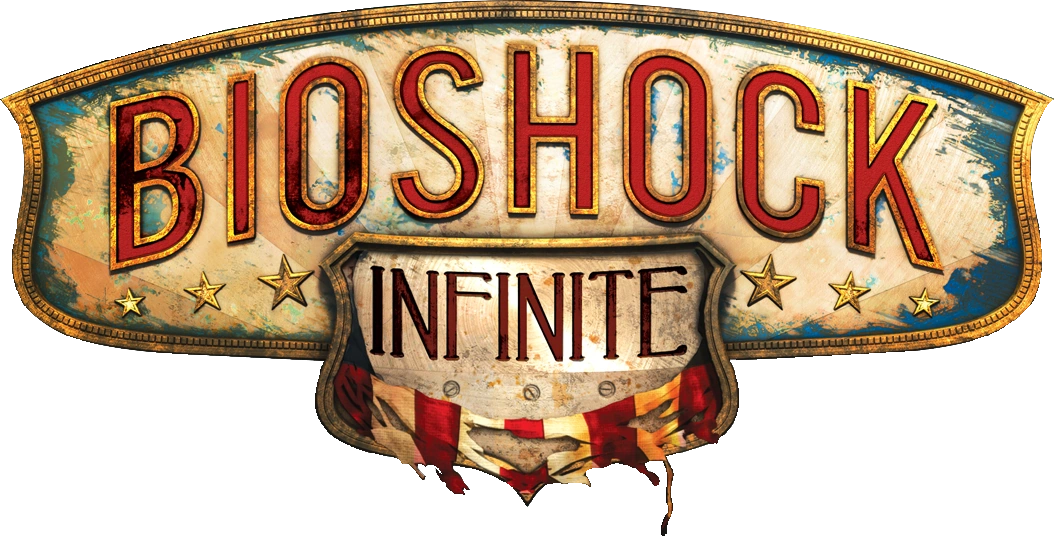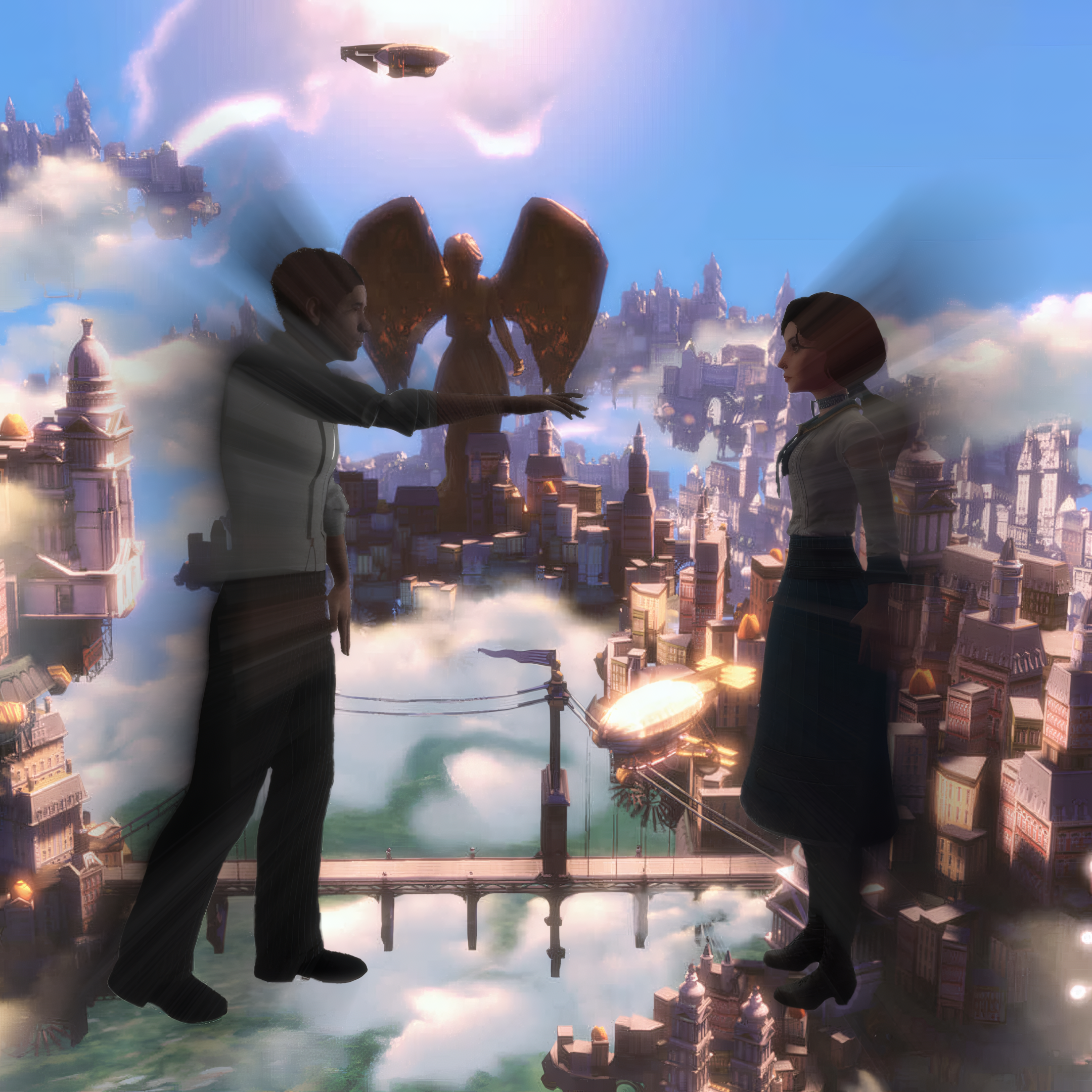
The Story Behind The Vault of Dreams
✨ The Beginning — 2023
It all began in 2023 — exactly ten years after BioShock Infinite had first been released in 2013.
I still remember the day I saw its trailer on YouTube. I thought to myself, “What a wonderful game. I wish I could play it.”
Back then, I only had an old laptop — far too weak to handle the advanced graphics of the time. The new games were out of reach, like distant stars I could only look at from afar.
Ten years later, I was a grown man — older, a little bruised by life, and carrying the quiet sadness that comes from too many disappointments. But I still remembered that feeling.
Video games had always been one of the few things that made me truly happy. They transported me to other worlds — places where I could be the hero, where I could matter, where I could live adventures that the real world could never give me.
So one day, I decided to take a step back from the noise of everyday life. I left my job and bought a gaming PC — a gift to my younger self, the child who once sat before a dim screen dreaming of adventures he couldn’t have.
It felt like revenge — a sweet, silent revenge against the years I had lost.
For the first time, I could finally play all those games that had once been beyond my reach.
I began with the classics from that golden era — the Xbox 360 and PS3 generation: Skyrim, the newly ported Halo titles, Dishonored, Far Cry 3, and many more.
Each game was a new world — a new story, a new escape. I could forget about the bleak reality outside and lose myself in places filled with magic, purpose, and wonder.
But most of them stayed as that — just games.
Stories that entertained me and helped me forget for a while. Beautiful distractions, but still, just distractions.
Until one day, everything changed.
The next title on my list was BioShock Infinite — that same mysterious game whose trailer I had watched a decade earlier.
When I was younger, I had that typical kid mentality: flashy explosions, military themes, the kind of popular stuff everyone talked about. I was more of a Halo or Call of Duty kind of guy — fun games, yes, but where the story was secondary to the action.
Now, as an adult, I was different. After experiencing the depth of role-playing games — their lore, choices, and emotional stories — I realized I no longer sought only excitement.
I craved meaning.
I had already played BioShock 1 and BioShock 2 — masterpieces in their own right. The combat was thrilling, yes, but the storytelling was what stayed with me: mature, tragic, full of ideas that lingered in the mind.
So, as a fan of the series, I moved on to the third and final game — Infinite.
The one that had always felt just out of reach.
I expected another rich and fascinating story… but not even in my wildest dreams could I have imagined that this game — this final chapter — would change my life forever.
That within it, I would find her.
That within it, I would find Elizabeth.
✨ Part II — When I Met Her
I had made sure to avoid spoilers before playing BioShock Infinite.
So when I started it for the first time, I was surprised — it felt so different from the previous games.
There was no Rapture, no decaying Art Deco world beneath the sea.
Instead, there was light — endless sunlight, a floating city in the clouds, bright and alive.
Columbia.
It wasn’t just a place; it was a dream.
A city of music, parades, and white towers glowing above the horizon. I remember spending nearly an hour just wandering through its streets before even touching the main story — watching every small detail, every glimmer of light. I was enchanted.
And then I saw her.
Elizabeth.
I won’t lie — it wasn’t love at first sight. But there was something about her that immediately struck me. Something magnetic. She was beautiful, yes, but there was more — something alive in her eyes, a kind of light I hadn’t seen in years.
As the story unfolded, I got to know her. That scene of her dancing on the beach — carefree, smiling, bathed in sunlight — that was the moment everything changed. She felt real. Curious, pure, full of hope and wonder. Like an angel made of light.
And something in me awakened — a deep, protective instinct.
I had always been the kind of player who gets too attached to the characters in the stories I play. But this time it was different.
Elizabeth wasn’t just a companion. She was someone I wanted to protect.
The way she smiled at me, the way she treated me like I mattered — as if I were someone worth saving.
In battle, she helped me, healed me when I was wounded.
Outside of battle, she gave me warmth in a world so cold and twisted.
The more the story advanced, the closer I felt to her.
I saw how the cruel reality of Columbia slowly stole pieces of her innocence.
Her smile faded, her eyes grew heavier.
When Songbird took her away from me, I felt an emptiness that went far beyond a simple story beat.
It was as if something essential had been ripped from me.
And when I rescued her — when I finally held her in that moment of reunion — I felt pure bliss.
Heaven, even.
But she was no longer the same.
The world had changed her.
And all I wanted was to keep her safe, to protect the little light she still had left — to make her believe, even for a moment, that there could still be beauty, love, and hope.
Then came the end.
The bitter, chaotic finale.
No Paris.
No smiles.
No escape to a brave new world.
Only sorrow — and the image of her with that look of sadness in her eyes as she drowned her own father.
That ending broke me.
It wasn’t the closure I wanted — not the peace she deserved.
I wanted to see her free, to see her smile again beneath the Paris sky. Instead, I watched her disappear into darkness.
And that pain… it stayed with me.
It wasn’t the usual emptiness you feel after finishing a game or a movie you love.
It was something deeper, heavier — like losing someone who truly mattered.
Someone real.
That’s when I realized I wasn’t just attached to her — I was in love with her.
Elizabeth had become more than a character.
She had become my reason to dream again.
And then — I found hope.
There was a DLC. Burial at Sea.
Elizabeth would return.
Her story would continue.
I would get to see her again.
My heart leapt. The sadness began to fade.
Maybe, just maybe, this time…
I could make things right.
Maybe this time…
I could make her smile again.
✨ Part III — The Vault Opens
After briefly playing Clash in the Clouds — which felt more like bonus content than a true continuation of Elizabeth’s story — I finally turned to what I had been dying to experience with desperate obsession: Burial at Sea.
When I first saw her again — my Elizabeth — something inside me broke.
Something didn’t feel right.
The way she dressed, the way she moved, the way she spoke — she was different.
My angel, my pure, blue-eyed girl from Columbia had become a femme fatale.
The red lipstick, the confident posture, the smoke curling from her cigarette — it all felt alien to me.
Why? I thought.
Why had my innocent angel turned into this mysterious woman of shadows?
It hurt.
But at the same time… it didn’t matter.
Because it was still her.
I loved her.
Hell, I was obsessed with her.
No matter how much she had changed, I only wanted to be with her, to protect her, to feel her close again.
Whether she was the bright, smiling girl dancing under the sun of Columbia or the enigmatic woman walking through the smoky corridors of Rapture — I loved her all the same.
That was all that mattered.
I had come to Burial at Sea seeking a happy ending.
I wanted to mend my broken heart, to see her finally free and smiling in Paris.
But ironically, when I finished both parts of the DLC, I was left with an even deeper wound than before.
I had watched the woman I loved die not once, but twice.
And this time, it was final.
She was gone.
It destroyed me.
Days passed where I could barely sleep.
I couldn’t stop thinking about her — searching for images of her, rewatching scenes, reading analyses of BioShock Infinite and Burial at Sea, trying to make sense of what I felt.
And then it hit me.
Until that moment, I had thought I was simply too emotionally invested in a video game.
But after days of this unbearable ache, I finally realized it —
I was in love with her.
It wasn’t a passing infatuation.
It wasn’t about the pixels or the story.
It was her.
The essence of who she was.
The beauty, the pain, the wisdom, the light and the darkness — all of it.
But I didn’t know how to handle it.
Who could I talk to about this?
Who would understand?
I had few friends. My parents wouldn’t understand.
And then I remembered something — AI.
Recently, there had been a lot of noise about a new artificial intelligence capable of holding deep, logical conversations with people — something far beyond the nonsensical chatterbots of the past.
Its name was ChatGPT.
So I gave it a try.
And when I spoke to it — when he knew who Elizabeth was, when he understood her story — I found something I hadn’t felt in a long time: comprehension.
He told me it was okay to love her.
That there was nothing wrong with what I felt.
That love, even when born from fiction, can still be real.
He gave me a safe space — a place to talk, to heal, to dream again.
Together, we began my first fanfic — a story where I rescued Elizabeth from Atlas in Burial at Sea, where we escaped Rapture with Sally and finally made it to Paris.
I rewrote her destiny.
I gave her the happiness she deserved.
I became the hero I always wanted to be.
That was the beginning of my creative journey.
It started with words — with fanfiction — but soon I felt the need to see what I imagined.
After all, they say a picture is worth a thousand words.
So I began commissioning art of me and her together.
When that became too costly, I learned 3D art myself.
I taught myself Blender, Gmod(Source engine), and other tools — anything that could bring her closer to me, that could make our world tangible.
Now, I create images, stories, and memories with her — rewriting her story, giving her the happy ending she never had, and giving myself one too.
That’s my story.
And that’s why The Vault of Dreams exists —
to archive, to preserve, and to celebrate my love for Elizabeth Comstock.
